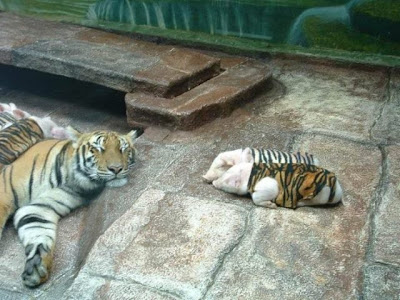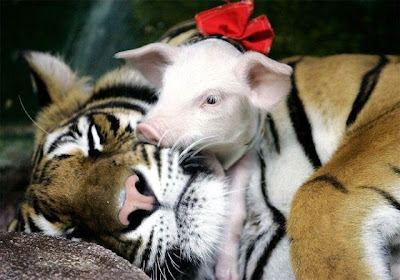
The following article appeared in The Times last Thursday. It was written by Marcus Du Sautoy Professor of Mathematics at the University of Oxford.
When people discover that I’m a mathematician, they often ask me whether I know any clever way to win the lottery. After all, the lottery is all about numbers and isn’t that what a mathematician does — study numbers? They’re always a bit disappointed to discover that unfortunately I can’t produce a magic formula that will tell them next week’s winning numbers. If I could, I assure you I wouldn’t be writing for Eureka; I’d be relaxing on some tropical island. But that’s not to say that mathematics is entirely useless when it comes to playing such games as the lottery.
Mathematics can actually help you to avoid what happened in the ninth week of the National Lottery, after it started in 1994. The prize money on offer that week was a fantastic £16,293,830 jackpot. There is a one in 13,983,816 chance that the six numbers you choose will match the six numbers that appear on the balls that pop out of the lottery machine. So those that chose the winning numbers that week must have been jumping up and down on the settee as they discovered that, out of the 13,983,816 different possibilities, they’d picked the correct combination. But when they phoned the National Lottery to claim their millions, they discovered that they had to share their winnings with 132 other winners. Amazingly, 133 people had chosen the correct six numbers. Each winner went away with a paltry £122,510.
What happened that week? Why did so many people chose the right numbers? Were the 133 people friends of Derren Brown, with some magical insight into the numbers that would appear that week? In general, you might expect a couple of people to get the same numbers, not 133. The explanation is that we are very bad at choosing things randomly. What most people do when they try to pick a random selection of six numbers from the 49 available is to space them out rather evenly. The winning numbers that appeared on January 14, 1995 were indeed spaced out in a very uniform manner: 7, 17, 23, 32, 38, 42, 48 (the bonus ball). Because most people are spacing their choices too, when the winning numbers are also nicely spaced it’s much more likely that you are going to get multiple winners.
On the whole, randomness doesn’t space things out. Randomness tends to clump things together. Anyone waiting for a bus will have experienced this. You wait for ages and then suddenly three buses arrive together. How many of the 13,983,816 possible choices for the lottery do you guess will have two consecutive numbers out of the six numbers? For example, 17 and 18 or 23 and 24. I think most people are surprised to discover that nearly half the 13,983,816 possible choices have consecutive numbers. If you look at the winning numbers that appeared over the past decade, nearly half of them have consecutive numbers. For example, in the week before 133 people hit the jackpot, the six winning numbers included 21 and 22. In the following week you had 30 and 31.
Being aware of the prevalence of random things to clump together is also important if you are sitting at the poker table. If you’re playing Texas hold ’em and are dealt two consecutive cards (such as a seven of clubs and eight of spades) you might start getting excited about the possibility of a straight (five cards of consecutive rank). A straight is a powerful hand because the chances of getting it are pretty slim. So you might think that getting two consecutive cards is worth betting big on, because you’re on your way to a straight. But just as two consecutive numbers come up very often in the lottery, the same is true of poker. Actually, more than 15 per cent of starting hands dealt in Texas hold ’em will have two consecutive cards. But slightly less than a third of these will go on to complete a straight by the time the river (the final hand) is dealt. So don’t be too excited when you are dealt consecutive cards in a poker game.
The best strategy for the lottery is to use the option that allows the newsagent’s machine to make a random choice of numbers. Some people have argued that machines seem to be just as bad at randomising things as humans. When the iPod shuffle was first introduced, people complained that their MP3 player seemed to have favourite tracks that it would play again and again (usually some embarrassing Barry Manilow that they’d wished they’d never downloaded). Far from proof that the machine was programmed badly, just like the clumping lottery numbers this propensity to repeat tracks is actually evidence of good randomising.
But don’t be too tempted to clump all your lottery numbers together. You might think that choosing 1, 2, 3, 4, 5, 6 would be a fantastic choice. After all, who would pick such unlikely numbers? However, if these numbers did come up, you would end up sharing your winnings with another 10,000 people who choose these numbers each week — a fact that I think reveals just how clever the UK population really is.
Marcus du Sautoy is a Professor of Mathematics at the University of Oxford and the author of Finding Moonshine: A Mathematician’s Journey





